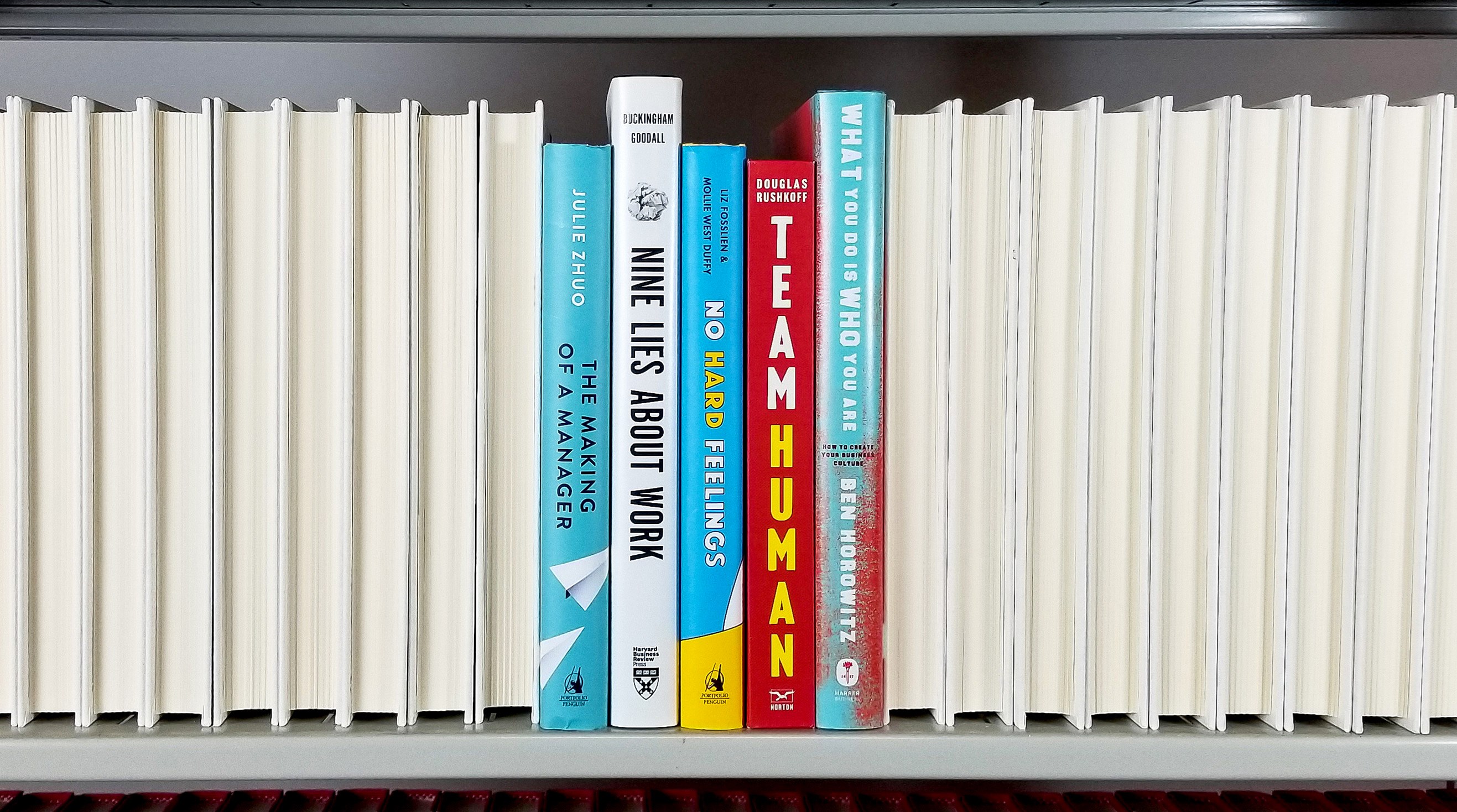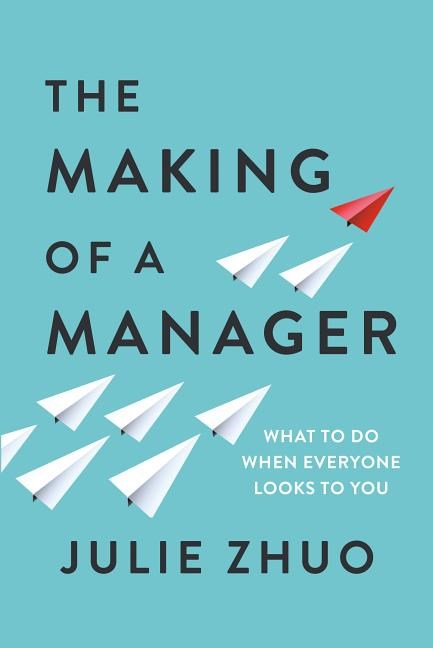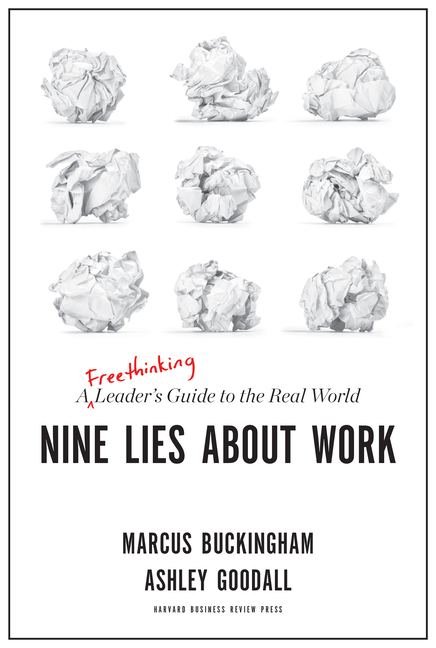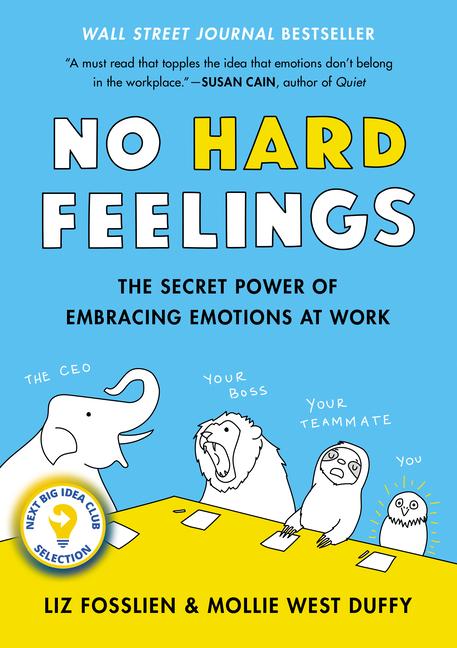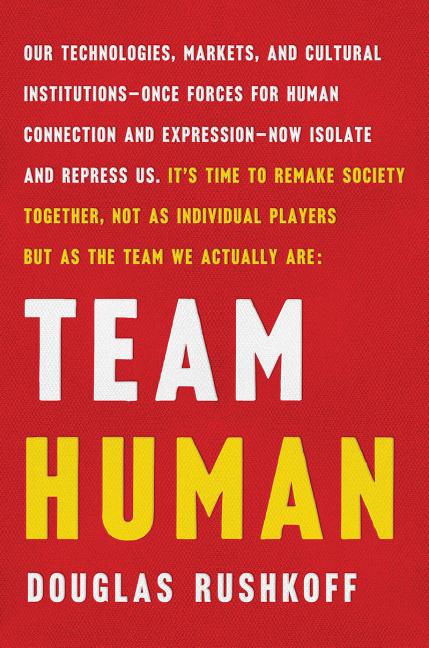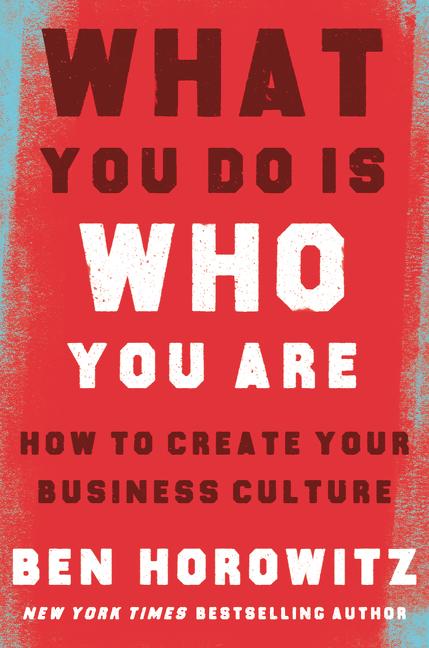Inside the 2019 Longlist: Management & Workplace Culture
November 26, 2019
Porchlight General Manager and Chief Strategist, Sally Haldorson, takes us inside the best books on Management & Workplace Culture published in 2019.
Each year, we jurors for our annual Business Book Awards apply a set of standards to the hundreds of nominated books: roughly, is the writing superb, the idea applicable, the position one that challenges traditional business mores? And while we steadfastly stand behind these standards, as I read this year’s entries in the Management & Workplace Culture category and traveled the arduous path toward choosing the best of the best, I found that the books that elevated themselves above the crowd had one thing in common: they made me want to go to work! As I read, I marked passages to show to our CEO, I took pictures of important pages that I shared with our staff, I made notes on how I might take some of these ideas and implement them in the company. The books made me eager to do my job, and excited to think what the working world might be like if everyone read these books. That’s how good they are, how essential they are, how exciting and… inciting they are.

The Making of a Manager: What to Do When Everyone Looks to You by Julie Zhuo, Portfolio
You’re handed a new iPhone, or maybe the keys to a new (to you) car, and what’s the first thing you do? If you are like me, you start pushing buttons and tapping screens, confident that your general intellect will guide you toward how to turn the thing on and make it do what you need it to do. Rarely do you consult the instruction manual unless you’re troubleshooting a problem. Julie Zhuo’s The Making of a Manager suggests that becoming a manager should be a little less catch-as-catch-can, especially because those new managerial assignments that often come with no instruction manual, come with expectations from those both below and above you. Zhou’s practical advice supports her driving belief that “success and failure aren’t usually the results of a few sweeping decisions.” Consider The Making of a Manager to be your user’s guide to becoming the kind of manager you’ve earned the right to be.
“How far you get will be the sum of the millions of actions taken by your team during the small, quotidian moments.”
Nine Lies About Work: A Freethinking Leader's Guide to the Real World by Marcus Buckingham & Ashley Goodall, Harvard Business Review Press
I’ve always been a “rule-abider,” thinking that following the yellow brick road of rules is the surest way to reach my personal Oz. But the older I get, the more I understand that attaining success by following the rules really depends on the validity of the rules themselves. Culturally acceptable rules are often just the median of possible behaviors, and instead of leading you to the promised land, they can lead you to a life of “pretty good.” In Nine Lies About Work, Buckingham and Goodall lend a critical eye to how we think work should be done. For example, they interrogate the myth of work/life balance. The very phrase implies that work is bad, and life outside of work is good. Instead, what if you loved work as much as you love your non-work life? It’s a powerful thought that comes only from breaking free from meaningless binaries. That same radical message undergirds each section of Nine Lies and will inspire you to create a new unconstrained path to success for yourself and your business.
“Wouldn’t it be wonderful if work were for love—if the point of work were to discover that which each of us loves?”
No Hard Feelings: The Secret Power of Embracing Emotions at Work by Liz Fosslien & Mollie West Duffy, Portfolio
How many of us, each time we type up an email, add to a Slack thread, or zip off a quick message, feel pressure to include a minimum of three, if not more, exclamation points!!!? We don’t want anyone to infer the wrong tone from our words, and somehow a simple period has become symbolic of impatience or even intolerance. That same kind of performative positivity is encouraged in most of our offices. Sure, sometimes we really are happy to be challenged, to solve a sticky wicket of a problem, and often we are grateful to have a good job in a great office, but more often, we are complicated people dealing with complicated work dealing with complicated people day in and day out. And day in and day out, we experience the gamut of emotions. Challenges lead to dead ends, sticky problems become even stickier, and great offices come with other complicated people who frustrate us, or worse, let us down. It’s all part and parcel of being human, and the delight of Fosslien and Duffy’s No Hard Feelings is not only the permission they give to bring our whole human selves to work, but also evidence that managing that way makes the work itself better.
“Effectively processing what you feel gives you the power to do more than bring your whole self to work: it enables you to bring your best self to work.”
Team Human by Douglas Rushkoff, W.W. Norton & Company
For nearly as long as the Internet has existed, there has been plenty of public writing critical of the dehumanizing evils of the technology, and more recently, of portable devices and social media. We are warned of how our brains are changed by the quick click culture of life online, how isolated we are becoming from one another IRL, how vulnerable to the marketing and messaging we are. Team Human is no different, but instead of simply tacking up a sign declaring “Use with Caution!” replete with a menacing skull and crossbones and then counting on us to use our best judgement to proceed blindly through our digital future as so many critics do, media theorist Douglas Rushkoff leads us away from danger toward a more satisfying and safe relationship with technology, a cooperative one that celebrates humanity and encourages us to stay connected—not to the Internet, but to each other. Being human, Rushkoff believes, isn’t an illness to be eradicated, but instead a singular gift that should be fed rather than starved.
“Art, at its best, mines the paradoxes that make humans human. It celebrates our ability to embrace ambiguity, to experience this sustained, unresolved state as pleasurable, or at least significant.”
What You Do Is Who You Are: How to Create Your Business Culture by Ben Horowitz, Harper Business
When you open a Ben Horowitz book, you expect to learn some very applicable lessons from a very singular perspective. In his own words, the venture capitalist and entrepreneur explains, “People often ask me why I preface much of what I write with quotes from hip-hop. In part it’s a hangover from my failed career as a rapper … But mostly it’s because the majority of my ideas about entrepreneurship, business, and culture occur to me while I’m listening to hip-hop.” And in What You Do Is Who You Are, Horowitz takes his unique cultural interests a step further by featuring atypical leadership stories—from a Haitan revolutionary, Samurai culture, a prison gang leader, and a Mongolian conqueror—to illustrate how action is the only thing that truly moves culture, and how culture is the only thing that can rescue a business that is struggling or direct a company that is succeeding beyond its wildest dreams. In What You Do Is Who You Are, Horowitz both entertains and instructs while offering us unexpected case studies to illustrate how in any business, culture is not only the rudder, but culture can also be revolutionary.
“To change a culture, you can’t just give lip service to what you want. Your people must feel the urgency of it.”
